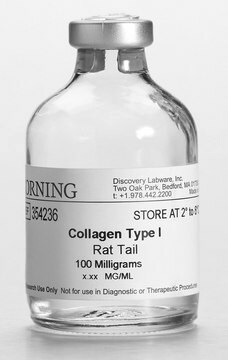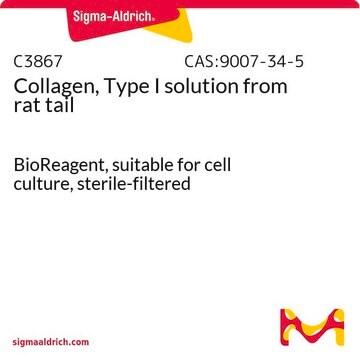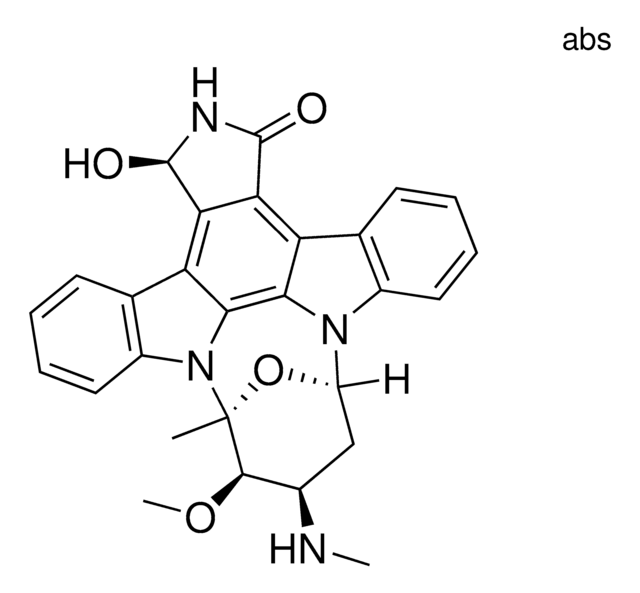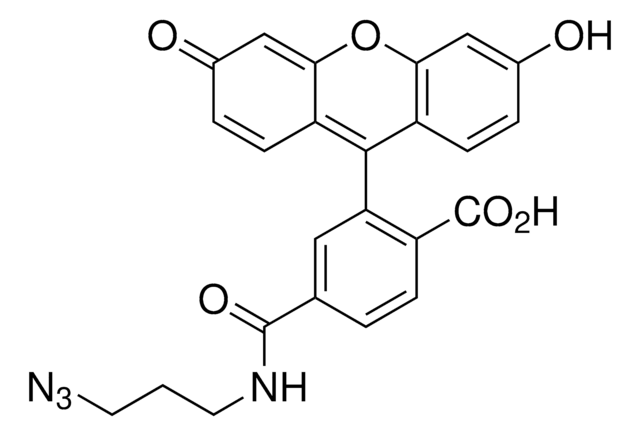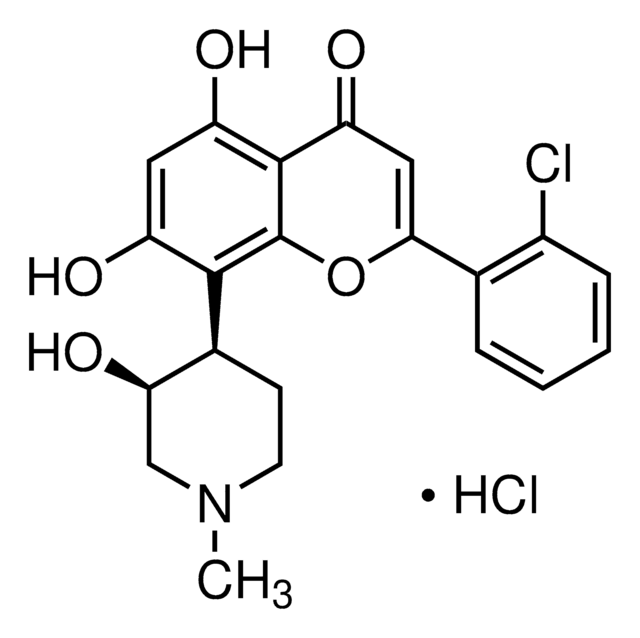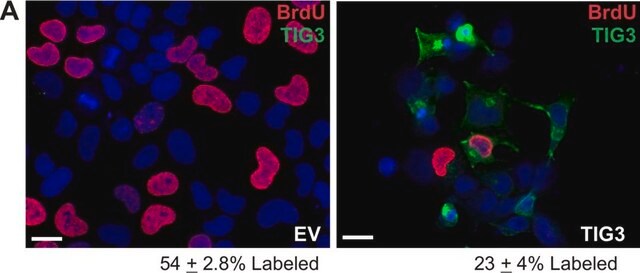E9902
Ephrin-A1/Fc Chimera from mouse
>90% (SDS-PAGE), recombinant, expressed in NSO cells, lyophilized powder
Synonyme(s) :
B61, EFL-1, LERK-1
Se connecterpour consulter vos tarifs contractuels et ceux de votre entreprise/organisme
About This Item
Produits recommandés
Source biologique
mouse
Niveau de qualité
Produit recombinant
expressed in NSO cells
Essai
>90% (SDS-PAGE)
Forme
lyophilized powder
Puissance
0.16-10 ng/mL
Poids mol.
monomer calculated mol wt 46.8 kDa
50-55 kDa by SDS-PAGE (reducing)
Conditionnement
pkg of 200 μg
Conditions de stockage
avoid repeated freeze/thaw cycles
Impuretés
endotoxin, tested
Numéro d'accès UniProt
Température de stockage
−20°C
Informations sur le gène
mouse ... Efna1(13636)
Actions biochimiques/physiologiques
EphA1 (ephrin receptor A1) plays an essential role in development, and is involved in the guidance of axonal and cell migration in nervous system. Disruption of ephrin signaling might be involved in the tumorigenesis of clear cell renal cell carcinoma, and absence of EphA1 has a favorable prognosis in the same. It might also be involved in the tumorigenesis and progression of prostate cancer, and might have potential as a marker for prognosis, as well as a therapeutic target. Studies show that it reduces the risk of Alzheimer′s disease, by hindering pathological changes in brain areas such as, hippocampus, lateral occipitotemporal and inferior temporal gyri. In esophageal squamous cells, it acts as differentiation marker. Its expression is elevated in esophageal squamous cell carcinoma, and this relates to advanced stage and metastasis to lymph node.
Member of ephrin ligand family that binds Eph receptor tyrosine kinases (EphA1, EphA2, EphA3, EphA4, EphA5, EphA6, EphA7 and EphB1). Involved in pattern formation and morphogenesis. Ephrin-A1 can be detected on fetal osteoblasts, odotoblasts, chondrocytes, and squamous epithelium. Ephrin-A1 is expressed during embryonic vasculogenesis and during tumor-induced angiogenesis.
Autres remarques
Extracellular domain of mouse ephrin-A1 (amino acids 1-182) fused to the C-terminal 6X histidine-tagged Fc region of human IgG.
Forme physique
Lyophilized from a 0.2 μm filtered solution in phosphate buffered saline.
Remarque sur l'analyse
The biological activity is measured by its ability to bind recombinant mouse EphA2/Fc in ELISA.
Code de la classe de stockage
11 - Combustible Solids
Classe de danger pour l'eau (WGK)
WGK 3
Point d'éclair (°F)
Not applicable
Point d'éclair (°C)
Not applicable
Faites votre choix parmi les versions les plus récentes :
Déjà en possession de ce produit ?
Retrouvez la documentation relative aux produits que vous avez récemment achetés dans la Bibliothèque de documents.
Hui-Fu Wang et al.
Journal of Alzheimer's disease : JAD, 44(1), 115-123 (2014-09-04)
Ephrin type-A receptor 1 (EPHA1) (11771145) was documented to be one of the most strongly associated locus with Alzheimer's disease (AD) in a recent meta-analysis of five genome wide association studies. However, its contribution to the pathogenesis of AD remains
Augustin DuSablon et al.
PloS one, 12(12), e0189307-e0189307 (2017-12-14)
EphrinA1, a membrane-bound receptor tyrosine kinase ligand expressed in healthy cardiomyocytes, is lost in injured cells following myocardial infarction. Previously, we have reported that a single intramyocardial injection of chimeric ephrinA1-Fc at the time of ischemia reduced injury in the
Libo Peng et al.
International journal of clinical and experimental pathology, 6(9), 1854-1860 (2013-09-17)
The erythropoietin-producing hepatocellular (Eph) family of receptor tyrosine kinases regulates a multitude of physiological and pathological processes. EphA1 is the first member of Eph superfamily and is involved in carcinogenesis. The aim of this study was to investigate the expression
Matthieu Chavent et al.
Biochemistry, 53(42), 6641-6652 (2014-10-07)
EphA1 is a receptor tyrosine kinase (RTK) that plays a key role in developmental processes, including guidance of the migration of axons and cells in the nervous system. EphA1, in common with other RTKs, contains an N-terminal extracellular domain, a
Jiandong Wang et al.
APMIS : acta pathologica, microbiologica, et immunologica Scandinavica, 121(1), 30-37 (2012-10-04)
Eph receptors play important roles in the development of cancer. The present study aimed to investigate the expression of EphA1 and its clinicopathologic significance in esophageal squamous cell carcinoma (ESCC). The expression levels of the EphA1 transcript and protein were
Notre équipe de scientifiques dispose d'une expérience dans tous les secteurs de la recherche, notamment en sciences de la vie, science des matériaux, synthèse chimique, chromatographie, analyse et dans de nombreux autres domaines..
Contacter notre Service technique